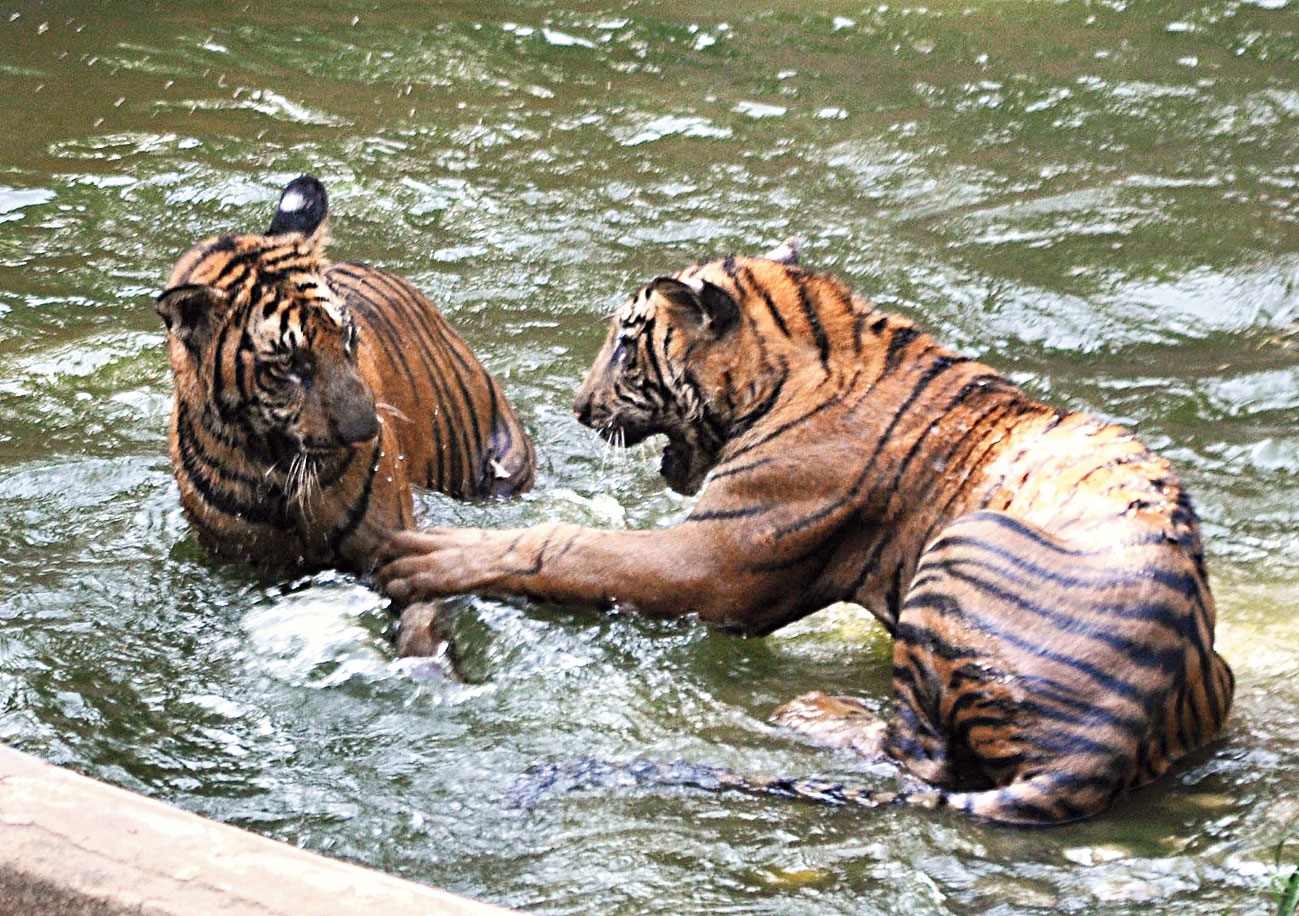The inmates of the Assam State Zoo are also going on a diet, but not to fall in with the latest fashion trends.
The zoo authorities have decided to streamline the diets of the inmates to make them active and to stimulate their inborn skills.
The authorities have decided to resort to such a step for the first time to do away with lethargy in the species with the availability of food without any hard work. The species would have otherwise toiled for food in the wild, authorities noted.
“In the state zoo, big cats like tiger and lion were generally fed six days a week, with beef being the staple diet. If we compare this with a wild tiger, it is seen that wild hunting expedition of tigers are only successful once in every 10 to 20 attempts. An adult tiger can consume up to 40kg of meat in one meal and it may not kill again for four or five days. A wild tiger also has to protect its territory for which it travels around 15km to 20km every day. Absence of these aspects has a deep impact on the tigers, making it more like a domestic animal. Therefore, it is important to control their feed in such a way that there is no lethargy of mind and body setting in,” zoo divisional forest officer Tejas Mariswamy said.
Considering the global trends in practices regarding feeding of the animal, the zoo has introduced a two-day fast for the tiger. For four days it will be fed with beef and one day with mutton. The zoo is exploring opportunities to include more variety in the diet.
“The main aim of introducing two-day fasting is to make the animal think as it is extremely important to keep the animal mentally active. A healthy mind leads to a healthy body,” Mariswamy said.
Being scavengers, vultures generally don’t feed every day. Therefore, food will now be provided on alternate days only.
Gradually over the years, the vultures will be fed twice a week. The aquatic birds being fed on dead fish will now be provided with live fish fingerlings which will be released in the pond.
“The aquatic birds will have to fish them as they do in nature. This is sort of feed enrichment where the birds are made to exhibit natural behaviour,” he said.
Authorities said the herbivores, especially deer, were overloaded with protein as observed by the health advisory committee of the zoo. Currently the feed is modified accordingly in the new diet plan taking examples from Mysore zoo which is one among the best performing zoos in the country.
To invoke the natural behaviour of the animals, food enrichment activities will be taken up. The food will be hidden inside an enclosure or on trees to ensure that the animals use their sensory skills to find the food.











